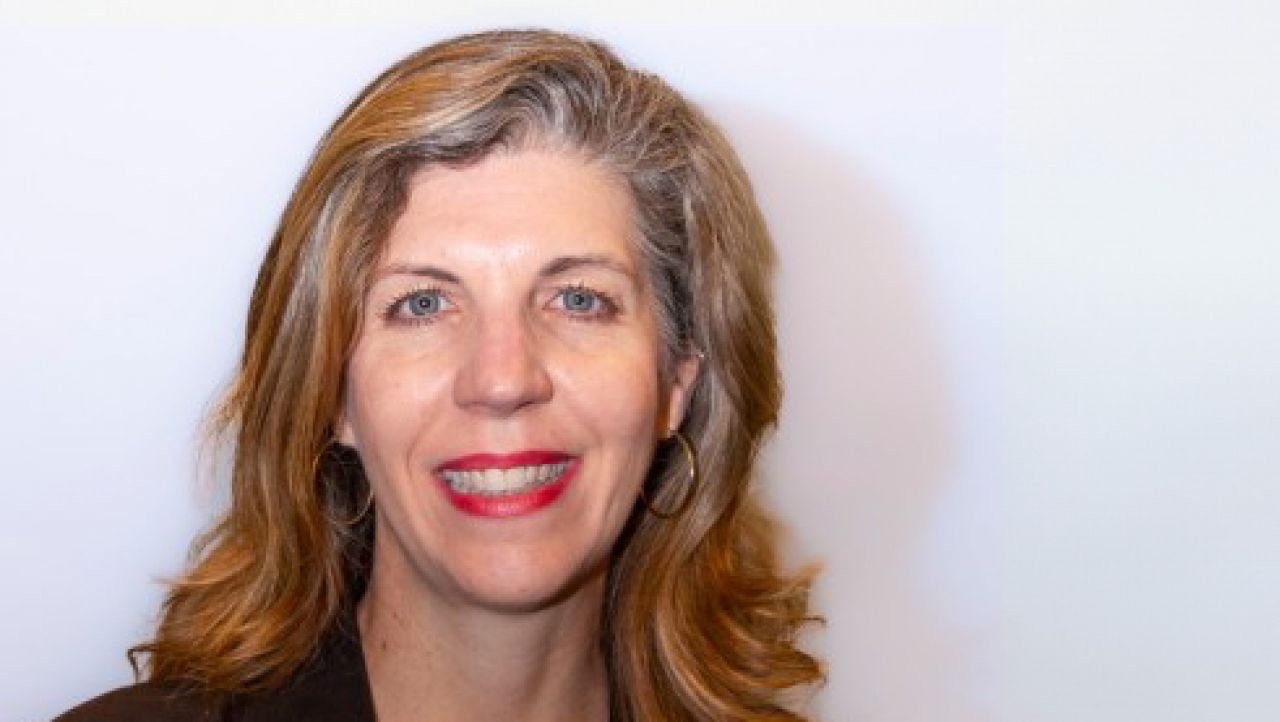April 09, 2024
Associated Press AI strategist Aimee Rinehart joins Page Center advisory board

Aimee Rinehart credits luck and pluck for being at the forefront of many new technologies before their infiltration into not just journalism but seemingly everything.
Rinehart is the senior product manager of AI strategy for the Associated Press. She started the position a year before AI exploded into everyone’s daily life, and she has become a leading voice for its implementation in newsrooms across the country. Rinehart brings this unique expertise and 30 years of journalism experience to the Page Center advisory board as one of its two newest members.
“I've always liked being a part of knowing what’s happening,” she said. “I've always liked coming in and saying, ‘OK, I know this is how we've done it, but how can we do it better?’”
One of Rinehart’s projects at the AP is developing a training strategy for covering AI across every news beat. For example, the strategy could help crime reporters in any sized news market evaluate how police departments are using AI to serve their precincts.
“If you’re a reporter in a small town, you can ask how patrols are being determined,” she said. “They’ll say, ‘Oh, we have this nifty AI program, and it decides for us.’ We want to give journalists language to interrogate that system just like they would any other subject.”
According to Rinehart, this type of program will have long term effects on communities, and it won’t stop at police departments. AI programs can determine rates at insurance companies, level of care at hospitals, enrollments at colleges and more. The strategy will assist reporters in covering AI’s part in each of these areas.
“Institutions think AI is going to be so helpful. They say: ‘It’s going to solve our problems, so sign me up,’” she said. “But maybe they don't have a lot of information around technology and they’re using a program in ways they don't really understand.”
Rinehart has seen this before. In the late 1990s, she was a night editor and web producer at the New York Times. She witnessed the internet start to flourish and seriously affect news distribution and consumption. Shortly after that she saw it again serving in a number of roles – including stints at the Wall Street Journal, Overseas Press Club and Columbia University School of Journalism – when social media altered the industry.
“It's the same stuff over and over again,” she said. “People think we can push it to the edge for as long as possible … and then they'll see what happens when the dust settles. That is not a competent posture to take.”
She added, “I don't think generative AI should be deployed universally across everything in news. In fact, the more I work with it, the less I think it's appropriate.”
While AI is helpful in collecting and analyzing large troves of data, Rinehart says the complexity and nuance of important news stories are still, and likely will always be, beyond its capability.
Rinehart said all communicators must be judicious with how they use AI tools. She warns of a “happy intern” quality that is often not suitable for news stories.
“There was a story that we were testing out,” she said. “Israel, for the first time, sold arms to Germany. AI made it sound like a used car salesman, basically with exclamation points. There's too much history packed into that concept.”
Rinehart joins former Weber Shandwick CEO Andy Polansky as the Page Center’s newest board members. Working in a news operation in the AI space, she adds an important practical perspective to the Center’s board.
In 2023, the Center funded several groups of scholars who are studying the ethical implementation and use of AI in public communication and other areas. It will continue to lead initiatives that address issues with the burgeoning technology, as well as reveal strategies for its use.
“The Center’s goal is to understand AI and tackle the ethical challenges that come with its use in our daily lives,” said Denise Bortree, Page Center director. “Aimee’s experience and vision will guide our focus and help all areas of public communication get the best out of this evolving technology.”
Since its 2004 founding, the Page Center has become an international leader in research on ethics and integrity in public communication. Over the past 20 years, the Center has funded nearly 300 scholars and awarded more than $1 million in research funding. The Center’s advisory board consists of 15 members that represent decades of leadership in education, business, journalism, non-profit and public relations.
